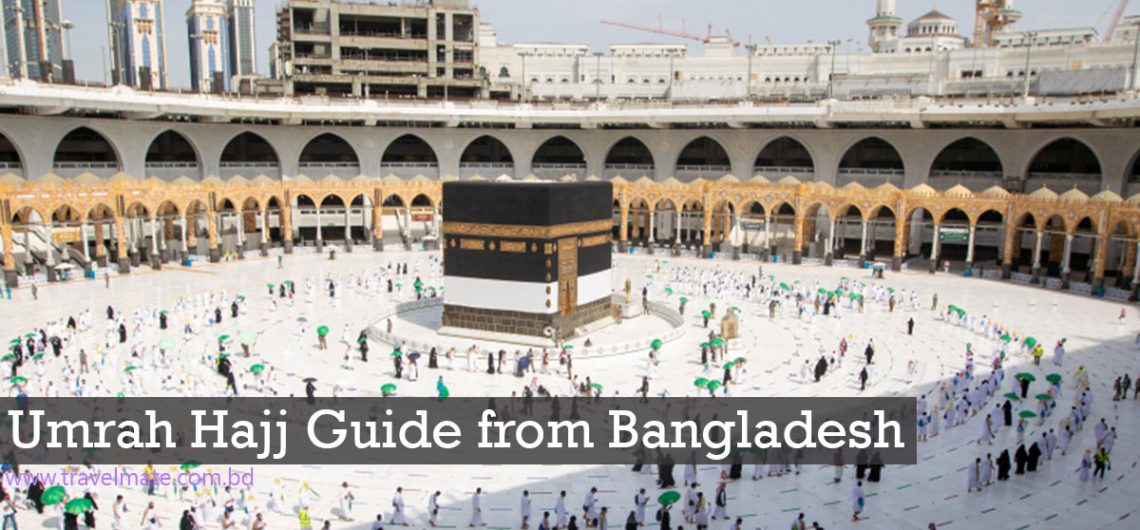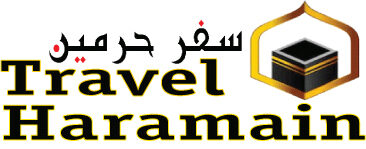Bangladesh Hajj is the annual pilgrimage to Mecca, Saudi Arabia, performed by Muslims from Bangladesh. People can register for Hajj in Bangladesh through the Bangladesh Haj Management Portal and can choose to perform Hajj either through the government scheme or with approved private Hajj agents in their cities.
However, meeting the quota and securing a spot for Hajj can be challenging due to factors such as limited slots and high airfares. The Bangladesh Hajj Office, under the Ministry of Religious Affairs, is responsible for the management of Hajj in Bangladesh.
1. Understanding The Importance Of Hajj
The significance of Hajj in Islam cannot be overstated. It is one of the Five Pillars of Islam and holds immense religious importance for Muslims. Hajj is a journey of self-discovery and spirituality, where believers embark on a pilgrimage to the holy city of Mecca in Saudi Arabia.
The personal and spiritual preparations before Hajj are crucial in ensuring a meaningful experience. This includes physical preparations such as getting vaccinated and gathering the necessary supplies, as well as mental and emotional readiness through prayer and reflection. Hajj is a time for Muslims to purify their souls, seek forgiveness, and strengthen their relationship with Allah.
It is a journey that requires dedication, sacrifice, and immense faith. By performing Hajj, believers fulfill an important duty and gain spiritual fulfillment that can only be found in this sacred journey.

2. Hajj Registration And Documentation
Registering for Hajj in Bangladesh requires specific documents to be submitted. These documents are essential for the registration process. To ensure a smooth registration experience, it is important to adhere to these guidelines. Avoid commonly overused words and phrases in your registration form.
Keep your sentences brief and concise, with a maximum of 20 words each. By following these guidelines, you can complete your Hajj registration accurately and efficiently. Remember to provide the necessary documents and information as requested. Completing the registration process correctly will help ensure a successful Hajj experience in Bangladesh.
3. Planning And Preparing For Hajj
Planning and preparing for Hajj involves selecting a Hajj package, booking travel arrangements and accommodations, and packing essentials. It is important to carefully choose a Hajj package that suits your needs and budget. This may involve researching different options and comparing prices and inclusions.
Once you have chosen a package, you will need to book your travel arrangements, including flights and transportation to and from the Holy Sites. It is also essential to book accommodations, preferably close to the Holy Sites to minimize travel time.
Finally, you must pack essential items for Hajj, such as ihram clothing, comfortable shoes, toiletries, and any necessary medication. Remember to pack light and only take what you truly need for the journey. Proper planning and preparation ensure a more comfortable and organized Hajj experience.
4. Arrival In Saudi Arabia
Upon arrival at King Abdulaziz International Airport in Saudi Arabia for the Bd Hajj pilgrimage, a series of immigration and customs procedures will need to be followed. These include presenting travel documents and going through security checks. Once cleared, transportation from the airport to the designated accommodation will be provided. Now Bangladesh and Saudi Government Hajjis All Immigration Completed in Dhaka & Chittagong This is Called Road To Makkah Service.
This ensures a smooth and hassle-free transition for the pilgrims, allowing them to settle in and prepare for their spiritual journey ahead in Bangladesh. The airport authorities and Hajj management ensure that the entire process is efficient and convenient, ensuring a comfortable start to the sacred pilgrimage experience.
5. Ihram And Tawaf
Entering the state of Ihram is a crucial step in performing Hajj. It involves wearing special clothing and making specific intentions before entering the sacred state. Ihram signifies the beginning of a pilgrim’s spiritual journey and a state of purity.
It is a reminder of the equality of all individuals in the eyes of Allah, as everyone wears the same simple attire. Once in Ihram, pilgrims proceed to perform Tawaf, which involves circling the Kaaba seven times. This ritual represents unity and devotion to Allah.
Pilgrims strive to complete Tawaf with sincerity and focus, seeking forgiveness and blessings. Tawaf is a powerful and humbling experience, as believers join millions of others in performing this sacred act. By entering Ihram and performing Tawaf, pilgrims take important steps towards fulfilling their Hajj obligations.
6. Sa’I: Walking Between Safa And Marwa
Sa’i is an important ritual of the Hajj pilgrimage in Bangladesh. It involves walking between the hills of Safa and Marwa seven times, symbolizing Hajar’s search for water for her infant son, Ismail. This ritual holds immense significance for Muslims worldwide, reinforcing the notion of faith, trust, and perseverance.
Performing the Sa’i ritual allows pilgrims to reflect on their own spiritual journey, seeking forgiveness, and renewing their commitment to Islam. It is a physically demanding task that requires endurance and devotion. The experience of walking between Safa and Marwa is a deeply spiritual one, where pilgrims can connect with the historical significance of this sacred act.
Understanding the significance of Sa’i allows pilgrims to engage fully in this ritual, embracing its rituals and meanings.
7. Mina, Arafat, And Muzdalifah
During the days of Hajj, staying in Mina is an essential part of the pilgrimage experience. In Mina, pilgrims camp in the tents provided, symbolizing the hardships faced by Prophet Ibrahim. This is where they spend their time before and after the day of Arafat.
Arafat is a significant day in Hajj, as pilgrims gather at the plain of Arafat to seek forgiveness and repentance. The day is spent in prayers and reflection, culminating in the sermon delivered by the Imam. After Arafat, the pilgrims proceed to Muzdalifah, where they spend the night under the open sky, picking up pebbles for the symbolic stoning of the devil in the following days.
These areas hold immense importance in the spiritual journey of Hajj, and pilgrims cherish these experiences forever.
8. Stoning Of The Jamarat
The stoning of the Jamarat holds great significance in the Hajj pilgrimage. It is a ritual that symbolizes the rejection of Satan’s temptations and reaffirms one’s devotion to Allah. Pilgrims hurl pebbles at three stone pillars, representing the locations where Satan attempted to dissuade Prophet Ibrahim from following Allah’s command.
This act serves as a reminder of the strength of Prophet Ibrahim’s faith and the importance of resisting temptation in one’s own life. The process of stoning the Jamarat involves throwing pebbles in a specific order and at designated times, ensuring that all pilgrims have the opportunity to perform this integral part of the Hajj.
Through this ritual, pilgrims unite in their shared commitment to their faith and their submission to Allah’s will.
9. Sacrifice And Tawaf Al-Ifada
Performing the sacrificial ritual during the Hajj pilgrimage is an essential part of the journey. Pilgrims are required to sacrifice an animal as an act of devotion and gratitude to Allah. This sacrifice typically takes place on the 10th day of Dhul Hijjah.
After the sacrifice, pilgrims also participate in Tawaf al-Ifada, a ritual of circling the Kaaba seven times. Tawaf al-Ifada is a crucial part of completing the Hajj and signifies the completion of the major rituals of the pilgrimage. This ritual is usually performed on the same day as the sacrifice.
It is important for pilgrims to follow the prescribed steps and perform these rituals with sincerity and reverence, as they hold significant spiritual and symbolic meaning. By performing the sacrifice and completing Tawaf al-Ifada, pilgrims fulfill two important obligations of the Hajj pilgrimage.
10. Farewell Tawaf And Departure
Performing the final Tawaf, the pilgrims say their farewell to the holy sites in Saudi Arabia before departing. The sacred act of Tawaf, circling the Kaaba, is the culmination of Hajj, symbolizing the unity of the Muslim ummah. With hearts full of gratitude and devotion, the pilgrims bid farewell to the Kaaba, the Black Stone, and the other significant landmarks.
As they complete the Tawaf, they reflect on the spiritual journey they have undertaken and seek forgiveness and blessings for themselves and their loved ones. Following the farewell Tawaf, the pilgrims begin their preparations to leave Saudi Arabia and return to their homes, carrying the memories and lessons from the blessed pilgrimage with them.
The departure marks the end of their physical presence in the holy land, but the spiritual transformation they have experienced will stay with them forever.
Frequently Asked Questions On Bd Hajj
How Much Is The Hajj Fee In Bangladesh 2023?
The exact Hajj fee in Bangladesh for 2023 is 672000 Taka.
How To Do Hajj From Bangladesh?
To perform Hajj from Bangladesh, you can either register through the government scheme or with approved private Hajj agents in your city. Make sure to check the Bangladesh Hajj Management Portal for registration and tracking information.
How Many People Register For Hajj In Bangladesh?
The number of people who register for Hajj in Bangladesh 127512 Pilgrimage.
How Can I Register For Hajj From Bangladesh?
To register for Hajj from Bangladesh, you can visit the Bangladesh Hajj Management Portal and follow the registration process outlined on the website. Make sure to have all the required documents and information ready before starting the registration process.
Conclusion
Hajj is a significant religious pilgrimage for Muslims all around the world, including Bangladesh. The Bangladesh Hajj Management Portal has made it easier for pilgrims to register and track their journey. With the option to choose between the government scheme or approved private Hajj agents, pilgrims have more flexibility in planning their pilgrimage.
However, Bangladesh has faced challenges in meeting the hajj quota due to high airfares and limited resources. Despite these obstacles, the government and relevant authorities are working tirelessly to ensure a smooth and successful Hajj experience for Bangladeshi pilgrims. If you are planning to perform Hajj from Bangladesh, it is important to stay updated with the latest information and follow the guidelines provided by the Bangladesh Hajj Office.
Whether you choose the government scheme or a private Hajj agent, remember that the journey of Hajj is a sacred and transformative experience that requires physical, mental, and spiritual preparation. May all those who embark on this journey find peace, fulfillment, and blessings during their sacred pilgrimage.
